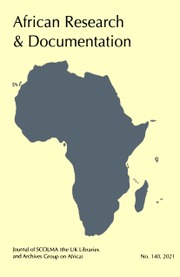No CrossRef data available.
Article contents
Perceived influence of academic qualifications, gender, religious affiliation and ethnic sentiment on mentoring practices in selected University Libraries in Nigeria
Published online by Cambridge University Press: 25 April 2022
Extract
Mentoring as a concept has been in existence throughout the centuries. For instance, Socrates mentored Plato, Plato mentored Aristotle, and Aristotle mentored Alexander the Great. The Holy Bible is also full of information about mentoring practices. For example, Elijah mentored Elisha; Jesus Christ mentored His disciples and Paul did the same to Timothy. Mentoring is a sustained relationship between a youth (one who is professionally young) and an adult (experienced professional). This is achieved through a sustained involvement. In this case a more advanced and experienced librarian offers support, guidance, and assistance as the younger professional (librarian), goes through a difficult time, faces new challenges or works to correct earlier problems.
Nigeria with an estimated population of over 140 million is a vast country and the giant of Africa. There are three major ethnic groups (Hausa, Igbo and Yoruba) and over 250 minor ethnic groups.
- Type
- Articles
- Information
- Copyright
- Copyright © International African Institute 2010




